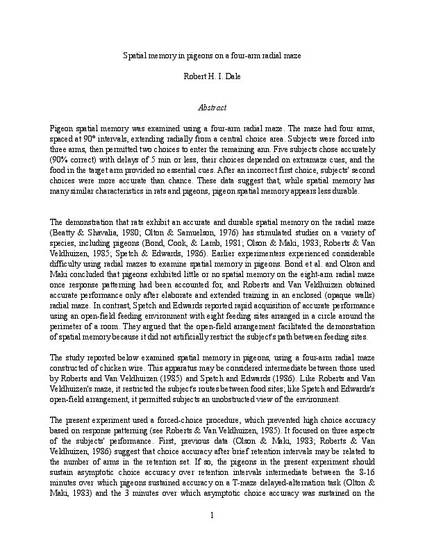
Pigeon spatial memory was examined using a four-arm radial maze. The maze had four arms, spaced at 90° intervals, extending radially from a central choice area. Subjects were forced into three arms, then permitted two choices to enter the remaining ann. Five subjects chose accurately (90% correct) with delays of 5 min or less, their choices depended on extramaze cues, and the food in the target arm provided no essential cues. After an incorrect first choice, subjects' second choices were more accurate than chance. These data suggest that, while spatial memory has many similar characteristics in rats and pigeons, pigeon spatial memory appears less durable.
Copyright © 1988 Canadian Psychological Association.
This is a post-print version of an article originally published in Canadian Journal of Experimental Psychology, 1988, Volume 42, Issue 1.
. The version of record is available through: American Psychology Association. "This article may not exactly replicate the final version published in the APA journal. It is not the copy of record."